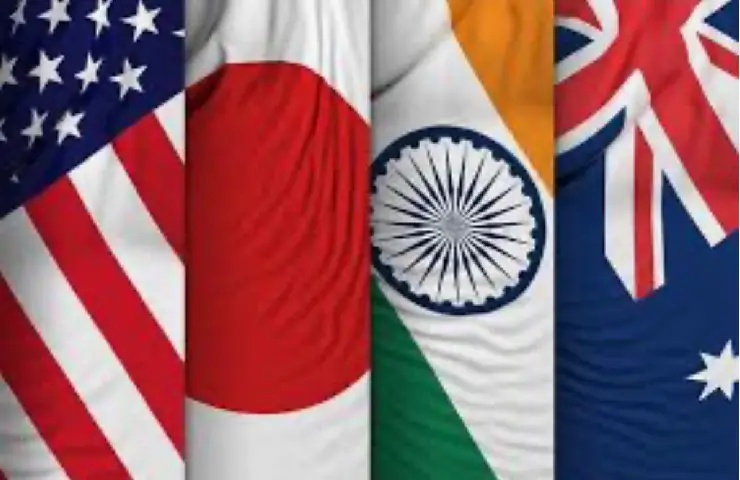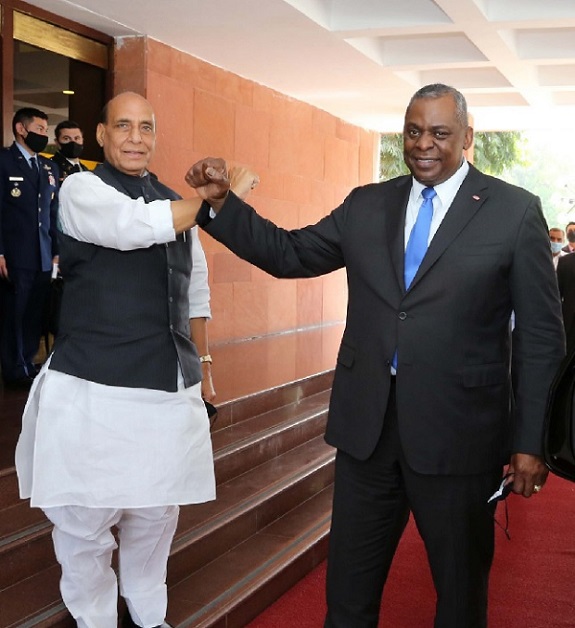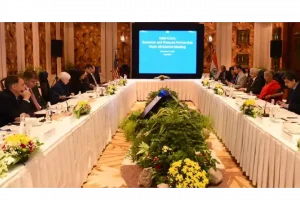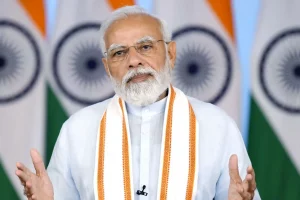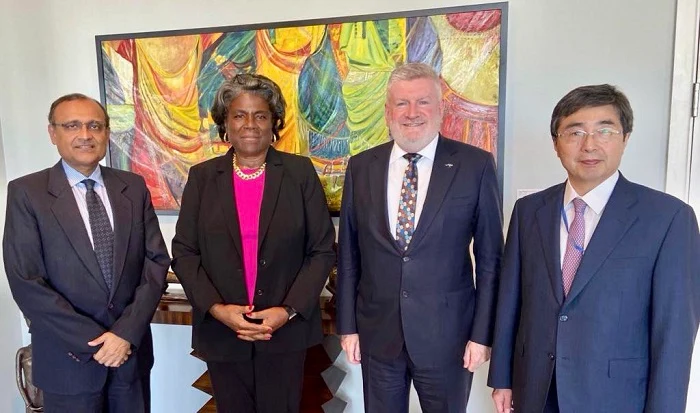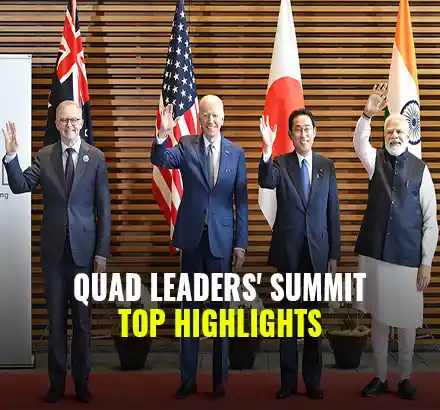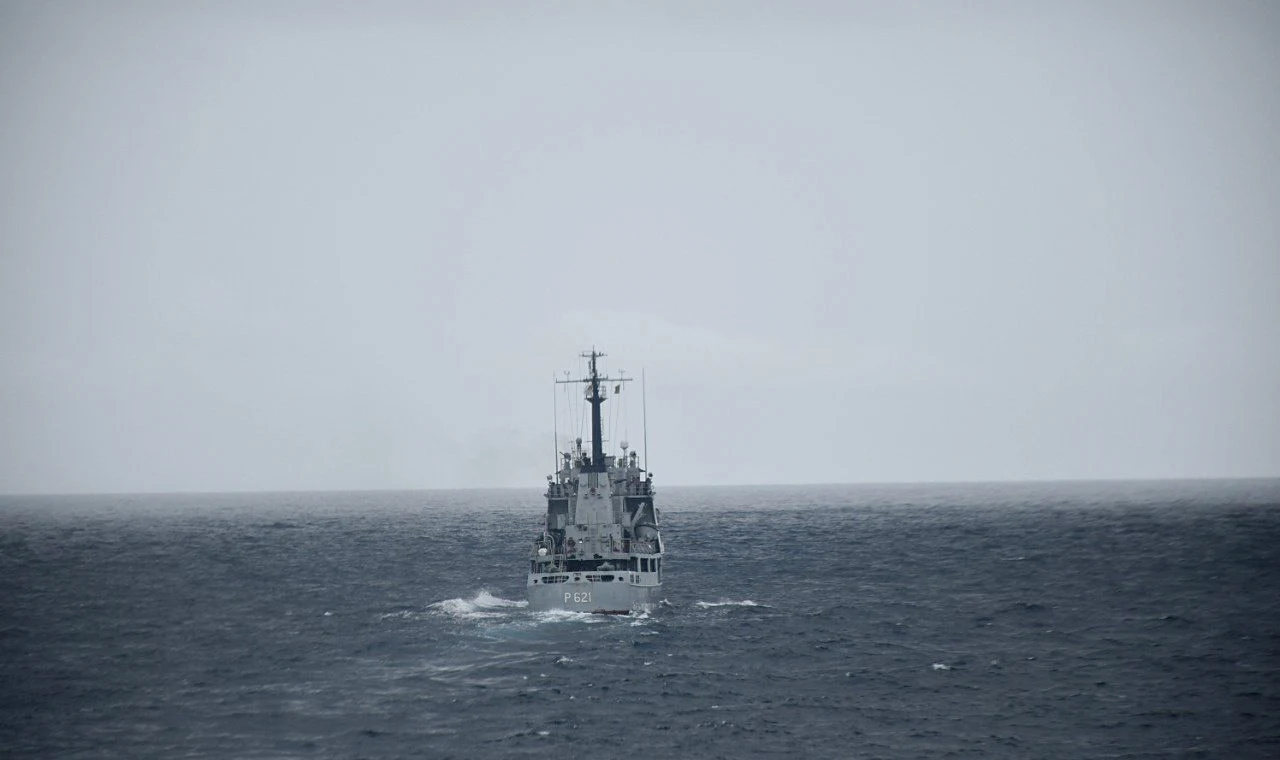With Australia, the UK and the US forming a clear military alliance—the AUKUS—by empowering the former with nuclear-power subs in an effort to rise up to China's challenge in the Indo-Pacific, India finds itself in a comfortable position.
The AUKUS alliance leaves the four-member Quadrilateral grouping to work on a neat roadmap—work on developmental, economic, health issues and also the climate crisis that plague the world. Many of these have become prominent in the last two years after the coronavirus first surfaced in the central Chinese city of Wuhan in late 2019.
This means that the Quad will no longer be accused of working on security lines, or like the "Asian NATO" which Beijing had accused, India, the US, Japan and Australia, off last year. India had always been apprehensive about being seen in a military alliance with the US. With the AUKUS, those apprehensions are laid to rest.
Importantly, the trilateral grouping will not inhibit the Quad from its core focus of containing China in the Indo-Pacific region. It will work to strengthen its members who will extend support to other nations.
Foreign Secretary Harsh Vardhan Shringla emphasised that the AUKUS agreement will not dilute the Quad as the two groupings are of a different nature. He said: "Quad countries share the vision of a free, open, transparent and inclusive Indo-Pacific region. Quad has adopted a wide array of initiatives globally on issues like the pandemic, new and emerging technologies and climate change".
The US also clarified to India this Monday that the new trilateral military pact will not impact the Quad. In his phone call with Defence Minister Rajnath Singh, US Defence Secretary Lloyd J. Austin said that Washington will continue to work with New Delhi.
The choice of issues before the Quad are a combination of social and economic which take on China and rebalance global equations.
Covid-10 vaccines
The four members have planned to support countries with Covid-19 vaccine production in India, financing by the US and distribution by Japan and Australia. With the pandemic situation under control in India, the US has been pushing India to begin exporting its vaccines. New Delhi has indicated that it will soon begin providing vaccines which it had halted in April due to the devastating second wave. If the US is serious about pushing this initiative, it may wave the patents for Covid-19 medicines and vaccines.
Connectivity and infrastructure
The world has seen the powerful impact of China's Belt and Road Initiative (BRI), which has been criticised for being opaque and laying snares through debt-traps. This is an area where the Quad promises transparency in building connectivity and funding infrastructure for countries in the Indo-Pacific. The US had also launched the Blue Dot Network (BDN) to unleash sustainable projects. However, with much on their plates in the last few weeks, the four members have not yet made progress.
Technology and building supply chains
After their March meeting, the Quad had set-up a working group on critical and emerging-technology. The idea was to figure out which technologies will match which countries and to research innovative technologies for the future. The plan is to build alternate supply chains to reduce dependence on China and tide over shortages caused by the coronavirus. The face-to-face meeting between leaders on September 24 will discuss the findings of the working group.
Climate change
The environmental crisis confronting the world is high on Biden's priority, who organised the online summit with 40 world leaders early on in his presidency. His special envoy on climate change, John Kerry has already visited India twice in the last six months. The US would be keen to ensure that the other three Quad members agree to some commitments over the Climate Change Conference being organised in Glasgow in November this year. Here India is keen that the US joins its International Solar Alliance, co-led by France.
Free and open Indo-Pacific
Of all the ambitous plans, this is the only security issue confronting the Quad. Even as the connectivity, infrastructure and supply chains seek to take on China in a spirit of competition, the FOIP plans to confront and curtail Beijing in the South China Sea where it threatens international shipping routes and nations like Japan, Taiwan, Vietnam, Malaysia and many others.






